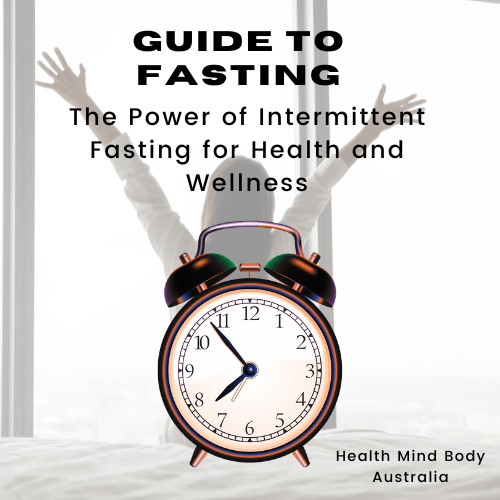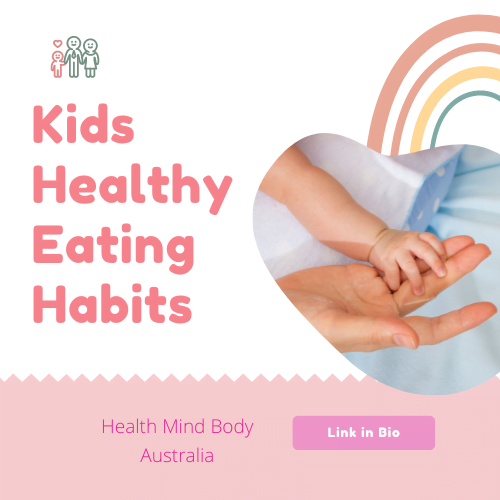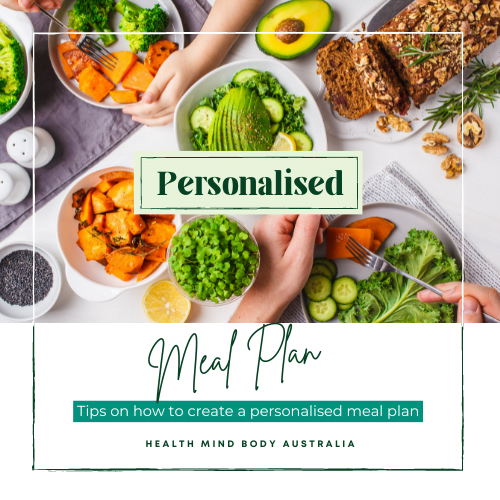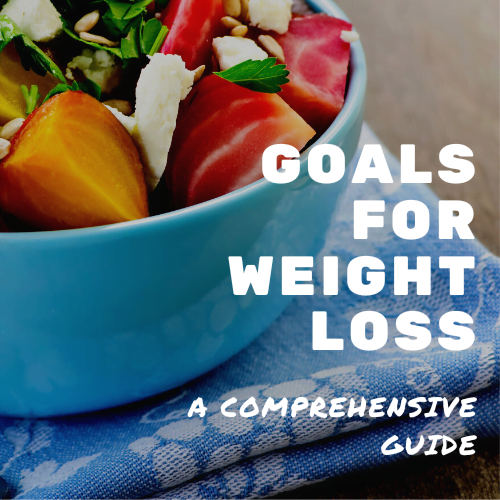This page contains affiliate links. If you choose to make a purchase after clicking a link, I may receive a commission at no additional cost to you.
Guide to Fasting: The Power of Intermittent Fasting for Health and Wellness
Fasting has become increasingly popular in recent years as a transformative tool for overall well-being.
From weight loss to improved mental clarity, the potential benefits of fasting are vast.
In this comprehensive guide, we will explore everything you need to know about fasting.
Whether you’re considering fasting for weight loss or as a busy mum looking to improve your health, this article will provide valuable insights and practical tips to kickstart your fasting journey.
Understanding Fasting: What is it and Why Fast?
Fasting is an ancient practice that involves voluntarily abstaining from food and beverages with the exception of water, black tea and coffee for a specified period.
Throughout history, fasting has been practiced for various reasons, including religious and spiritual beliefs, cleansing rituals, and health-related goals.
Today, people choose to fast for a multitude of reasons, such as weight loss, improved metabolic health, and enhanced mental clarity.
During a fasting period, individuals typically refrain from consuming any calories, although water consumption is allowed to maintain hydration.
However, some fasting methods may allow limited calorie intake or specific types of foods or beverages, such as bone broth or herbal teas.
The primary distinction between fasting and regular calorie restriction is the intentional time frame designated for not consuming food.
Fasting involves a deliberate period of no food intake, while calorie restriction typically involves reducing daily calorie intake without specified fasting periods.
The duration of fasting can vary widely depending on the chosen fasting method.
Some common fasting approaches include:
Time-Restricted Eating
This method involves limiting the daily eating window, such as practicing a 16/8 approach where food is consumed within an eight-hour window, while fasting for the remaining 16 hours.
Alternate-Day Fasting
This approach alternates between fasting days, where no or very minimal calories are consumed, and non-fasting days with regular eating.
Whole-Day Fasting
This method involves abstaining from food for a full 24-hour period, typically once or twice a week.
Extended Fasting
Extended fasts typically last longer than 24 hours and can range from a few days to several weeks. These fasts often require close monitoring and medical supervision.
It’s important to note that fasting should be approached with caution and consideration for individual health and well-being.
Consulting with a healthcare professional before starting any fasting regimen is advisable, especially for individuals with underlying health conditions, pregnant or breastfeeding women, or those taking medications that may be impacted by fasting.
Understanding the fundamentals of fasting, including the duration, method, and potential impact on the body, provides a solid foundation for individuals looking to explore this practice.
Fasting can offer various benefits, but it is crucial to approach it mindfully and tailor it to suit individual needs and goals.
The Benefits of Fasting: Exploring the Positive Impact on Health
Research suggests that fasting can offer a range of health benefits.
These include improved insulin sensitivity, enhanced cellular repair and autophagy, which is the body’s process of cleaning out damaged cells, reduced inflammation, and increased human growth hormone (HGH) levels.
Additionally, fasting has been associated with weight loss, increased energy levels, improved brain function, and potential longevity benefits.
We delve into the scientific evidence supporting these claims and explain how fasting can positively impact your health.
While individual results may vary, research and testimonial evidence suggest several positive impacts of fasting on overall health and well-being.
Here are some of the potential benefits of fasting:
Weight Loss
Fasting can be an effective tool for weight management.
By reducing calorie intake during fasting periods, the body is more likely to tap into stored fat for energy, leading to weight loss.
Fasting can also help regulate hormones involved in appetite control and metabolism, such as insulin and ghrelin, the hunger hormone.
Improved Insulin Sensitivity
Fasting has been shown to enhance insulin sensitivity, allowing cells to better respond to the hormone insulin.
This can help regulate blood sugar levels and reduce the risk of insulin resistance and type 2 diabetes.
Enhanced Cellular Repair
During fasting, a process called autophagy is activated, allowing the body to break down and recycle old, damaged cells.
This cellular repair mechanism promotes overall cellular health and may have anti-aging effects.
Reduced Inflammation
Chronic inflammation is linked to numerous health conditions, including heart disease, cancer, and autoimmune disorders.
Fasting has been shown to reduce markers of inflammation in the body, potentially contributing to improved health outcomes.
Increased Human Growth Hormone (HGH) Levels
Fasting has been found to stimulate the production of human growth hormone (HGH), which plays a crucial role in cell regeneration, metabolism, and muscle growth.
Higher levels of HGH can support fat burning and muscle preservation.
Cognitive Benefits
Fasting may have positive effects on brain health and cognition.
Some studies suggest that fasting can improve focus, concentration, and mental clarity.
It may also promote the growth of new nerve cells and protect against neurodegenerative diseases.
Cardiovascular Health
Fasting has been associated with improvements in cardiovascular health markers, including blood pressure, cholesterol levels, and triglycerides.
These benefits may contribute to a lower risk of heart disease.
Potential Longevity Benefits
Some animal studies suggest that fasting and caloric restriction may extend lifespan and delay the onset of age-related diseases.
While more research is needed in humans, these findings are promising.
It’s important to note that fasting should be approached responsibly, and individual results may vary.
It may not be suitable for everyone, especially those with certain medical conditions, pregnant or breastfeeding women, or individuals with a history of disordered eating.
Consulting with a healthcare professional before starting a fasting regimen is advisable.
Incorporating fasting into a healthy lifestyle, alongside a balanced diet, regular physical activity, and adequate sleep, may maximise the potential benefits and promote overall well-being.
Addressing Concerns: Common Misconceptions and Potential Risks
Like any dietary practice, fasting comes with its share of concerns and misconceptions.
While fasting can offer several health benefits, it’s essential to address common misconceptions and potential risks associated with this practice.
By understanding and mitigating these concerns, it can help you make informed decisions about incorporating fasting into your lifestyle.
Here are some important considerations:
Nutritional Deficiencies
One concern with fasting is the potential for nutrient deficiencies due to reduced food intake.
To minimise this risk, it’s important to prioritise nutrient-dense foods during eating periods and ensure a well-balanced diet overall.
Including a variety of fruits, vegetables, whole grains, lean proteins, and healthy fats can help meet nutritional needs.
Muscle Loss
There is a misconception that fasting leads to significant muscle loss.
However, studies suggest that proper nutrition and resistance exercise during non-fasting periods can help preserve muscle mass.
Including sufficient protein in meals and incorporating strength training exercises can support muscle maintenance.
Disordered Eating
Fasting may not be suitable for individuals with a history of disordered eating or those prone to developing an unhealthy relationship with food.
It’s crucial to approach fasting with a balanced mindset and prioritise overall well-being.
If you have concerns about your relationship with food, it’s recommended to consult with a healthcare professional or registered dietitian before embarking on a fasting regimen.
Energy Levels and Productivity
Some individuals worry that fasting may lead to decreased energy levels and reduced productivity.
While it’s common to experience an adjustment period initially, many people report increased mental clarity and focus during fasting periods.
Staying adequately hydrated and consuming balanced meals during eating windows can help maintain energy levels.
Hormonal Effects
Women, in particular, may have concerns about the impact of fasting on hormones and menstrual cycles.
Extended or intense fasting regimens may disrupt hormonal balance in some cases.
It’s important to listen to your body and consult with a healthcare professional if you experience any adverse effects on your menstrual cycle or hormonal well-being.
Individual Variations
Every person’s response to fasting can vary.
Factors such as genetics, age, overall health, and lifestyle can influence the outcomes.
It’s important to monitor your body’s response to fasting, stay attuned to your hunger and satiety cues, and make adjustments as needed.
Medications and Medical Conditions
Some medications and medical conditions may be affected by fasting.
It is essential to consult with a healthcare professional before starting a fasting regimen if you have any underlying health conditions or take medications to ensure that fasting is safe and appropriate for you.
Remember, fasting is not a one-size-fits-all approach, and what works for one person may not work for another.
It’s crucial to listen to your body, prioritise your overall well-being, and seek guidance from healthcare professionals when necessary.
Fasting should be approached responsibly, and any concerns or questions should be addressed to ensure a safe and healthy fasting experience.

How to Fast: Different Fasting Methods and Approaches
It’s important to find a fasting method that suits your lifestyle and goals.
Here are some popular fasting methods:
Time-Restricted Feeding
This approach involves limiting your daily eating window to a specific number of hours and fasting for the remaining hours.
One of the most common time-restricted feeding methods is the 16/8 method, where you fast for 16 hours and have an 8-hour eating window.
You can adjust the eating window based on your schedule, such as 14/10 or 12/12.
Alternate-Day Fasting
With this method, you alternate between fasting days and non-fasting days.
On fasting days, you significantly reduce your calorie intake or consume only a small number of calories to around 500 calories.
The on non-fasting days, you eat normally.
Modified Fasting
Modified fasting allows for some calorie intake during fasting periods.
For example, the 5:2 method involves eating normally for five days of the week and restricting calorie intake to around 500-600 calories on two non-consecutive fasting days.
Whole-Day Fasting
This method involves fasting for a full 24-hour period.
For instance, you might choose to fast from dinner to dinner the next day.
You can incorporate whole-day fasting once or twice a week or as desired.
Extended Fasting
Extended fasting refers to fasting for longer periods, usually exceeding 24 hours.
Extended fasts can range from several days to weeks.
It is important to approach extended fasting with caution and consult with a healthcare professional, as it may require medical supervision.
Intermittent Energy Restriction
This approach involves alternating between periods of normal calorie intake and reduced calorie intake.
For example, you might eat your regular amount of calories for a few days and then reduce calorie intake for a couple of days.
When choosing a fasting method, consider your lifestyle, commitments, and how well it aligns with your goals.
It’s essential to listen to your body and find a fasting approach that works best for you.
Remember to stay hydrated during fasting periods and break your fast with nutritious meals when it’s time to eat.
It’s worth noting that fasting is not suitable for everyone, such as individuals with certain health conditions, pregnant or breastfeeding women, or those with a history of disordered eating.
Consulting with a healthcare professional is recommended before starting any fasting regimen, especially if you have specific health concerns.
Experimenting with different fasting methods and finding the one that suits you best can help you harness the potential benefits of fasting while maintaining a healthy and balanced lifestyle.
Sample Fasting Schedule: An Example of a Beginner’s Fasting Routine
If you’re new to fasting, having a sample fasting schedule can be helpful to understand how to structure your eating and fasting windows.
Here’s an example of a beginner’s fasting routine:
12/12 Method:
Fasting Window: From 8:00 PM to 8:00 AM
Eating Window: From 8:00 AM to 8:00 PM
In this method, you would fast for 12 hours overnight, including your sleep time, and have a 12-hour eating window during the day.
16/8 Method:
Fasting Window: From 8:00 PM to 12:00 PM (lunch time the next day).
Eating Window: From 12:00 PM to 8:00 PM.
With the 16/8 method, you would fast for 16 hours, including the overnight fasting period, and have an 8-hour eating window during the day.
This often involves skipping breakfast and having your first meal around noon.
5:2 Method:
Fasting Days: Two non-consecutive days per week (fr example, Monday and Thursday)
Fasting Protocol: On fasting days, restrict calorie intake to 500-600 calories.
Normal Eating Days: Eat normally for the remaining five days of the week.
In the 5:2 method, you would select two non-consecutive days of the week as fasting days where you consume a limited number of calories.
On the remaining days, you would eat normally without calorie restriction.
Remember, these are just sample schedules, and you can adjust them according to your preferences and lifestyle.
The key is to find a fasting routine that works best for you and is sustainable in the long run.
As you progress and become more comfortable with fasting, you may choose to explore different fasting methods or adjust the duration of your fasting and eating windows.
It’s important to listen to your body and make adjustments that suit your individual needs.
Additionally, it’s essential to prioritise nutrient-dense meals during your eating windows to ensure you’re meeting your nutritional needs and supporting your overall health.
Always consult with a healthcare professional before starting any fasting regimen, especially if you have underlying health conditions or concerns.
Remember, the goal is to find a fasting routine that fits your lifestyle and helps you achieve your health and wellness objectives while promoting a balanced and sustainable approach to eating.
The Science Behind Fasting: Unveiling the Mechanisms and Effects
Fasting has gained significant attention in recent years due to its potential health benefits.
Behind these benefits lie a fascinating array of biological mechanisms and effects that occur within the body during fasting.
Let’s delve into the science behind fasting to understand how it impacts our physiology and overall well-being.
Insulin and Blood Sugar Regulation
During fasting, insulin levels decrease, allowing the body to tap into stored glucose (glycogen) for energy.
As glycogen stores are depleted, the body starts using fat as its primary fuel source.
This metabolic shift can help regulate blood sugar levels and improve insulin sensitivity, potentially benefiting individuals with conditions such as type 2 diabetes.
Autophagy
One of the key cellular processes triggered during fasting is autophagy, which translates to self-eating.
Autophagy is a natural mechanism that allows cells to break down and recycle damaged or dysfunctional components.
It plays a vital role in cellular repair, removal of toxins, and maintaining cellular health.
Ketosis
Extended periods of fasting can lead to a state of ketosis.
Ketosis occurs when the body’s carbohydrate stores are depleted, and it starts producing ketones from fat breakdown to serve as an alternative energy source.
Ketones have shown various benefits, including enhanced brain function, increased energy, and potential appetite suppression.
Human Growth Hormone (HGH) Release
Fasting can trigger the release of human growth hormone (HGH), a hormone that plays a crucial role in tissue repair, muscle growth, and metabolism.
Increased HGH levels during fasting can aid in fat burning and muscle preservation, which may be beneficial for weight management and body composition.
Cellular and Genetic Repair
Studies suggest that fasting can activate genetic pathways that promote cellular repair and rejuvenation.
This includes enhanced DNA repair mechanisms, increased production of proteins involved in stress resistance, and improved mitochondrial function.
These cellular repairs contribute to overall cellular health and may have anti-aging effects.
Inflammation Reduction
Chronic inflammation is associated with various diseases, including cardiovascular disease, obesity, and cancer.
Fasting has been shown to reduce inflammation markers in the body, potentially contributing to improved overall health and reduced disease risk.
Brain Health and Cognitive Function
Fasting has been linked to neuroprotective effects and improved brain health.
It can stimulate the production of brain-derived neurotrophic factor (BDNF), a protein involved in promoting neuronal growth and protecting against neurodegenerative diseases.
Fasting has also shown potential benefits in improving cognitive function, focus, and memory.
Caloric Restriction and Weight Loss
Fasting, particularly when combined with caloric restriction, can be an effective approach to weight loss.
By reducing overall calorie intake and promoting fat utilisation, fasting can create a calorie deficit, leading to weight loss.
Additionally, fasting may help regulate appetite hormones, resulting in reduced food cravings and increased satiety.
It’s important to note that the science behind fasting is still evolving, and further research is needed to fully understand its mechanisms and long-term effects.
Personal Experience: A Journey of Positive Transformation through Fasting
I would like to share my personal experience with fasting and how it has positively impacted my weight loss journey.
Please note that everyone’s experience with fasting can vary, and it’s important to consult with a healthcare professional before starting any fasting regimen.
Like many individuals, I struggled with weight management for years.
I tried various diets and exercise routines, but I couldn’t seem to achieve sustainable results.
That’s when I stumbled upon The Healthy Mummy Program and soon after incoprated the concept of fasting into my program to give me that extra boost and flexibility.
I started with a time-restricted feeding approach, commonly known as the 16/8 method. This meant fasting for 16 hours and having an 8-hour eating window.
Initially, the idea of not eating for 16 hours seemed challenging, but I quickly adapted to the routine as most of the time was while I slept and those busy morning made it easier.
One of the first benefits I noticed was an improvement in my appetite control.
By limiting my eating window, I became more mindful of my food choices and portion sizes.
I found myself making healthier choices during my eating periods and feeling more satisfied with smaller meals.
As I continued with fasting, I began to experience weight loss.
It wasn’t a rapid drop in kilos, but rather a steady and sustainable progress.
I attribute this to the calorie deficit created by the fasting period and the improved metabolic function associated with fasting.
Fasting also had a positive impact on my overall energy levels and mental clarity.
Contrary to my initial concerns, I felt more focused and energised during my fasting periods.
It helped me break free from the constant need for snacking and provided a sense of discipline and self-control.
To enhance my fasting experience, I incorporated regular exercise into my routine.
I found that exercising during my fasting period, such as in the morning before breaking my fast, worked well for me.
It provided an extra boost to my weight loss efforts and improved my overall fitness level.
Throughout my fasting journey, I made sure to listen to my body and adjust my approach as needed.
I paid attention to any signs of fatigue or discomfort and modified my fasting windows accordingly.
It’s crucial to find a fasting method that works for your body and lifestyle.
Of course, fasting alone was not the sole factor in my weight loss transformation.
I combined fasting with a balanced and nutritious diet, including plenty of fruits, vegetables, lean proteins, and whole grains and The healthy Mummy Program made that part so much easier.
I also focused on staying hydrated and getting adequate sleep to support my overall well-being.
While fasting has been a game-changer for me, it’s important to emphasise that it may not be suitable for everyone.
It’s crucial to consider individual factors, health conditions, and consult with a healthcare professional before embarking on any fasting regimen.
Fasting for Weight Loss: Harnessing the Power of Intermittent Fasting
Fasting has gained significant attention as a powerful tool for weight loss, and one popular approach is intermittent fasting.
Let’s delve deeper into how intermittent fasting can be harnessed for effective weight loss.
Calorie Restriction
One of the primary reasons intermittent fasting aids weight loss is through calorie restriction.
By reducing the number of hours you have to eat, you naturally limit your overall calorie intake.
This creates a calorie deficit, which is essential for weight loss.
Increased Fat Burning
During fasting periods, when glycogen stores are depleted, the body starts relying on stored fat as a source of energy.
This promotes fat burning and can help with weight loss, especially in stubborn areas like the belly.
Improved Insulin Sensitivity
Intermittent fasting can enhance insulin sensitivity, allowing your body to utilise glucose more efficiently.
This can help regulate blood sugar levels and prevent insulin spikes, which can contribute to weight gain and fat storage.
Appetite Regulation
Intermittent fasting can help regulate appetite hormones, such as ghrelin and leptin, which control hunger and satiety.
This can lead to reduced food cravings and better control over portion sizes, supporting weight loss efforts.
Metabolic Benefits
Intermittent fasting has been shown to have positive effects on metabolic health.
It can improve metabolic flexibility, increase fat oxidation, and support the preservation of lean muscle mass, which is essential for maintaining a healthy metabolism.
Mindful Eating
Fasting can promote mindfulness around eating.
With a condensed eating window, you become more aware of the quality and quantity of food you consume.
This can lead to healthier food choices, reduced emotional eating, and a better relationship with food.
Sustainable Lifestyle Approach
Intermittent fasting is often regarded as a sustainable approach to weight loss.
Unlike restrictive diets, it doesn’t require eliminating specific food groups or counting calories meticulously.
Instead, it focuses on when you eat, making it easier to incorporate into your daily routine.
It’s important to note that intermittent fasting is not a magic solution for weight loss.
It should be combined with a balanced diet, regular physical activity, and overall healthy lifestyle habits.
Here are some tips to optimise your intermittent fasting experience:
Start gradually
If you’re new to fasting, begin with shorter fasting windows and gradually increase the duration as your body adapts.
Stay hydrated
Drink plenty of water during fasting periods to stay hydrated and help curb hunger.
Choose nutrient-dense foods
During eating windows, prioritise whole, unprocessed foods that provide essential nutrients and support overall health.
Listen to your body
Pay attention to your hunger and satiety cues.
Don’t force yourself to eat if you’re not hungry, and stop eating when you feel comfortably full.
Be flexible
Find an intermittent fasting schedule that works for you and your lifestyle.
Experiment with different fasting patterns until you find what feels sustainable and enjoyable.
Consult a healthcare professional
If you have any underlying health conditions or concerns, it’s important to consult with a healthcare professional before starting intermittent fasting.
Intermittent fasting can be an effective tool for weight loss when combined with healthy habits.
Fasting for Busy Mums: Incorporating Fasting into a Hectic Lifestyle
Being a busy mum can make it challenging to prioritise your own health and weight management. However, intermittent fasting can be a flexible and effective approach for busy mums looking to incorporate fasting into your hectic lifestyle.
Here are some tips for successfully incorporating fasting into your routine:
Choose the Right Fasting Method
There are various intermittent fasting methods to choose from, and finding the one that suits your lifestyle is key.
For busy mums, the 16/8 method may be a good starting point, I know this one works well for me.
This involves fasting for 16 hours and having an 8-hour eating window.
You can adjust the timing to fit your schedule, such as skipping breakfast and having an early lunch.
Plan and Prep Meals
Planning and prepping meals in advance can save you time and make it easier to stick to your fasting routine.
Dedicate a day of the week to meal planning, grocery shopping, and meal prepping.
Prepare healthy meals and snacks that align with your eating window, making it convenient to grab and go when you’re busy.
Optimise Nutrient Density
When you do eat, focus on nutrient-dense foods that provide essential vitamins, minerals, and energy.
Include a balance of lean proteins, whole grains, fruits, vegetables, and healthy fats in your meals.
This will help keep you satisfied and nourished throughout the day.
Stay Hydrated
Hydration is crucial, especially during fasting periods.
Make sure to drink plenty of water throughout the day to stay hydrated and help curb hunger.
You can also have herbal teas, flavoured water, or infused water for variety.
Adjust Fasting Windows
Flexibility is key especially if your a busy mum.
If your schedule doesn’t allow for a strict 16/8 fasting window every day, don’t worry.
You can adjust your fasting window based on your daily activities and commitments.
For example, you may have a shorter fasting window on days when you have early morning activities or social events.
Prioritise Self-Care
As a busy mum, it’s important to prioritise self-care and manage stress levels.
Use your fasting periods as an opportunity for mindfulness and relaxation.
Practice deep breathing exercises, meditation, or engage in activities that help you unwind and recharge.
Involve the Family
Intermittent fasting doesn’t mean your family has to follow the same approach, but involving them in meal planning and preparation can make it easier for everyone.
Encourage healthy eating habits and have family meals together whenever possible.
Be Kind to Yourself
Remember that intermittent fasting is a tool, and it’s okay to be flexible.
If you have an occasional day where your fasting routine gets disrupted, don’t stress about it.
Focus on consistency over perfection and listen to your body’s needs.
As with any dietary change, it’s important to consult with a healthcare professional before starting intermittent fasting, especially if you have any underlying health conditions or concerns.
Tips for Successful Fasting: Strategies to Optimise Your Experience
Fasting can be a beneficial practice for various health and lifestyle goals.
To make the most of your fasting experience, here are some tips and strategies to optimise your success:
Set Clear Goals
Define your objectives for fasting.
Whether it’s weight loss, improved metabolic health, increased mental clarity, or other benefits, having clear goals will help you stay motivated and focused throughout your fasting journey.
Start Slowly
If you’re new to fasting, it’s best to start gradually.
Begin with shorter fasting periods, such as 12 or 14 hours, and gradually increase the duration as your body adapts.
This will make the adjustment easier and help you sustain the practice long-term.
Stay Hydrated
Hydration is essential during fasting periods.
Drink plenty of water throughout the day to maintain proper hydration levels.
You can also include herbal teas, black coffee (without added sugar or milk), and unsweetened beverages to help curb hunger and keep you hydrated.
Choose the Right Fasting Method
There are several fasting methods to choose from, such as time-restricted feeding, alternate-day fasting, or extended fasting.
Experiment with different approaches to find the one that suits your lifestyle, preferences, and goals the best.
Listen to Your Body
Pay attention to your body’s signals and adjust your fasting routine accordingly.
If you feel overly fatigued or unwell during fasting periods, it may be a sign to modify your approach. It’s crucial to prioritise your overall well-being and make adjustments that work for you.
Stay Busy and Distracted
Engage in activities that keep you occupied during fasting periods.
Staying busy can help take your mind off food and reduce the urge to eat out of boredom.
Engage in hobbies and physical activity, or spend quality time with loved ones to distract yourself.
Eat Nutrient-Dense Meals
During your eating windows, focus on consuming nutrient-dense foods.
Opt for whole grains, lean proteins, fruits, vegetables, and healthy fats to ensure you’re meeting your nutritional needs.
Prioritising quality nutrition will support your overall health and well-being.
Manage Stress
Chronic stress can impact your fasting experience.
Incorporate stress-management techniques such as meditation, deep breathing exercises, yoga, or engaging in activities that help you relax.
Stress reduction can positively influence your fasting journey and overall health.
Seek Support
Consider joining a fasting support group or finding an accountability partner.
Having someone to share your experiences, challenges, and successes with can provide motivation and encouragement along the way.
Online communities or local support groups can be excellent resources for support and guidance.
Consult a Healthcare Professional
If you have any underlying health conditions or concerns, it’s always advisable to consult with a healthcare professional before starting a fasting regimen.
They can provide personalised guidance based on your specific needs and help ensure your fasting practice is safe and appropriate for you.
Remember, fasting is not a one-size-fits-all approach, and what works for one person may not work for another.
It’s essential to find a fasting strategy that aligns with your goals, preferences, and lifestyle.
With consistency, patience, and proper self-care, you can optimise your fasting experience and reap the potential benefits it offers.
Final Thoughts – Guide to Fasting
Fasting is a powerful practice that can offer numerous benefits for overall health and well-being.
Whether you’re looking to lose weight, improve metabolic health, enhance mental clarity, or simply adopt a more mindful approach to eating, fasting can be a valuable tool in your wellness toolkit.
By understanding the concept of fasting, exploring different fasting methods and approaches, and recognising the potential benefits and concerns associated with fasting, you can make informed decisions about incorporating it into your lifestyle.
Through personal experiences I have successfully integrated fasting into my routines, with careful planning, flexibility, and self-care, fasting can be adapted to fit even the busiest of lifestyles.
Remember, it’s important to listen to your body, set clear goals, and consult with a healthcare professional before embarking on any fasting regimen, especially if you have underlying health conditions or concerns.
Ultimately, the success of fasting lies in finding a sustainable approach that works for you.
Each person is unique, and what works for one individual may not work for another.
Be patient with yourself, stay consistent, and be open to adjusting your fasting routine as needed.
Fasting can be a transformative journey that goes beyond physical changes.
It can instill discipline, self-awareness, and mindful eating habits, fostering a deeper connection with your body and the food you consume.
As with any lifestyle change, it’s important to approach fasting with balance, moderation, and an emphasis on overall well-being.
Combine fasting with a nutritious diet, regular exercise, stress management techniques, and adequate sleep to maximise the benefits and support a healthy and vibrant life.
Embrace the potential of fasting as a tool for positive change, and may your fasting journey be one of self-discovery, empowerment, and improved health.
I would love to hear from you on my social media, come say Hi!
Amy xx
This page contains affiliate links. If you choose to make a purchase after clicking a link, I may receive a commission at no additional cost to you.







